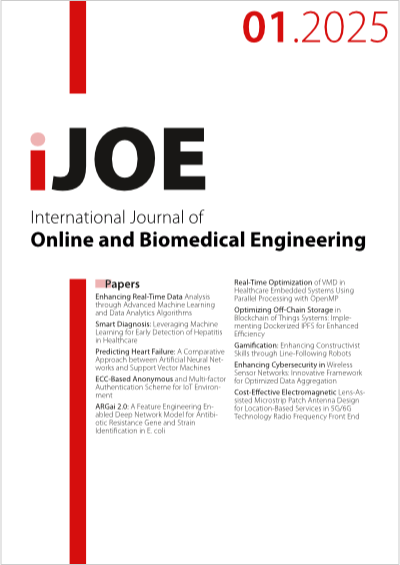Real-Time Optimization of VMD in Healthcare Embedded Systems Using Parallel Processing with OpenMP
DOI:
https://doi.org/10.3991/ijoe.v21i01.51717Keywords:
Healthcare, Embedded Systems, OpenMP, Variational Mode Decomposition, PhotoplethysmogramAbstract
Variational mode decomposition (VMD) is an advanced signal processing technique used to analyze photoplethysmogram (PPG) signals to extract vital physiological indicators such as heart and respiratory rates. However, implementing VMD on embedded systems presents challenges due to limited computational resources and the need for real-time performance. This paper investigates the optimization of VMD using OpenMP to improve the performance of healthcare-focused embedded systems. We first describe the naive VMD implementation and identify computational bottlenecks. We then optimize the algorithm using OpenMP by parallelizing critical sections, including iterative updates and loop structures, within a homogeneous CPU architecture. We evaluate performance based on metrics such as processing time, efficiency, and the accuracy of heart rate extraction. Experimental results demonstrate that the optimized VMD algorithm achieves a near-linear speedup, with processing times reduced by up to 9.45 times compared to the naive single-threaded version while maintaining efficient resource utilization. This optimization enables real-time signal processing in healthcare applications, improving the performance and reliability of medical devices for patient monitoring and care.
Downloads
Published
How to Cite
Issue
Section
License
Copyright (c) 2024 Zakaria EL KHADIRI, Rachid LATIF, Amine SADDIK

This work is licensed under a Creative Commons Attribution 4.0 International License.



